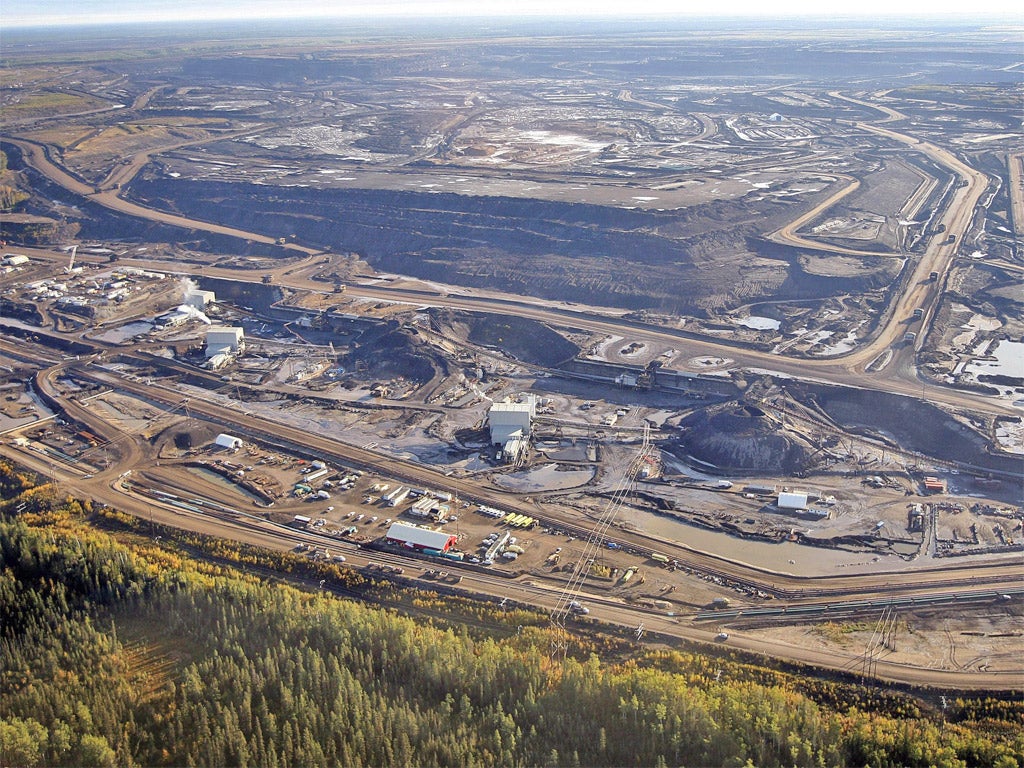Bank financing of extreme fossil fuel soars, according to damning report
Shareholders must press banks to stop financing projects that will long term harm their businesses, not to mention the planet and everyone on it

Your support helps us to tell the story
From reproductive rights to climate change to Big Tech, The Independent is on the ground when the story is developing. Whether it's investigating the financials of Elon Musk's pro-Trump PAC or producing our latest documentary, 'The A Word', which shines a light on the American women fighting for reproductive rights, we know how important it is to parse out the facts from the messaging.
At such a critical moment in US history, we need reporters on the ground. Your donation allows us to keep sending journalists to speak to both sides of the story.
The Independent is trusted by Americans across the entire political spectrum. And unlike many other quality news outlets, we choose not to lock Americans out of our reporting and analysis with paywalls. We believe quality journalism should be available to everyone, paid for by those who can afford it.
Your support makes all the difference.Through the projects they fund, banks are some of the most environmentally destructive businesses on the planet.
The annual report by a group of non profit organisations makes this very clear. “Banking on Climate Change,” has found that financing for extreme fossil fuels - in other words the really nasty stuff - surged to a staggering $115bn (£81bn) in 2017.
It’s all the more disappointing given that the previous year (2016 when the Paris Climate Agreement was signed) had seen progress with a fall to $104bn from $126bn.
According to the report “no bank has yet truly aligned its business plan with the Paris Climate Agreement, whose temperature goals require banks to cease financing expansion of the fossil fuel sector” despite many claiming to support its aims.
It goes on: “The lack of comprehensive policies from all banks on extreme fossil fuels means that last year’s increase in financing could continue and even accelerate in the years to come.”
For the record, the latter includes tar sands, arctic and ultra deep water oil, liquefied natural gas, coal mining and coal power. Tar sand projects enjoyed the biggest increase in funding in 2017, with the money going to them more than doubling to $47bn.
The report was put together by the Rainforest Action Network, Banktrack, The Sierra Club, Oil Change International, and others. It has was endorsed by still more.
The worst offenders highlighted in its pages are Canadian, American and Chinese, banks but Britain has one in there too in the form of HSBC (in seventh). It cites that bank as the fourth biggest backslider too.
The UK bank with the best overall grade is Standard Chartered, which does most of its business in Asia, and manages a C minus. Barclays, RBS and HSBC all rate a D plus. About the only thing to be said for that is that there are others rated as even worse. Four Chinese banks (Agricultural Bank of China, Bank of China, China Construction Bank and ICBC) each get an overall F, and the same grade in every single individual category assessed to arrive at it.
Before you start saying that this is just an exercise in “banker bashing” it is not. Indeed, France’s BNP Paribas is singled out for some modest praise for its “restrictions for not just coal financing, but for some parts of oil and gas as well”. It still only manages a C plus overall, but still serves as an example of what can be done.
The report notes that the U.N. Intergovernmental Panel on Climate Change (IPCC) will publish an assessment in September summarising the implications of the Paris Agreement’s more ambitious goals. A leaked draft, we are told, doesn’t make for happy reading.
There will inevitably be a business and economic cost from climate change, and it will be steep indeed. It will be made manifest as the effects of rising global temperatures become ever more clear.
The best of it is that banks will suffer from this as much as anyone, especially those that also own insurance companies, which are expecting sharply higher claims to emerge as a consequence of climate change.
In pumping money into destructive industries that will exacerbate an existential crisis banks are damaging their businesses and acting against their own long term best interests.
Their policies need to change. Their shareholders need to get the ball rolling by pressuring them harder to do so. They too will suffer through what’s happening. We all will.
Join our commenting forum
Join thought-provoking conversations, follow other Independent readers and see their replies
Comments